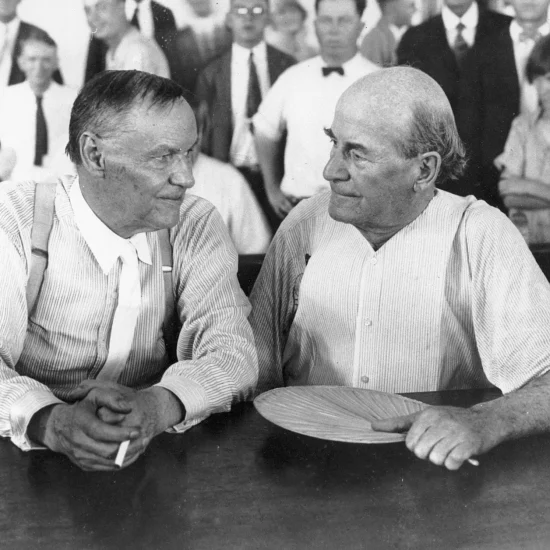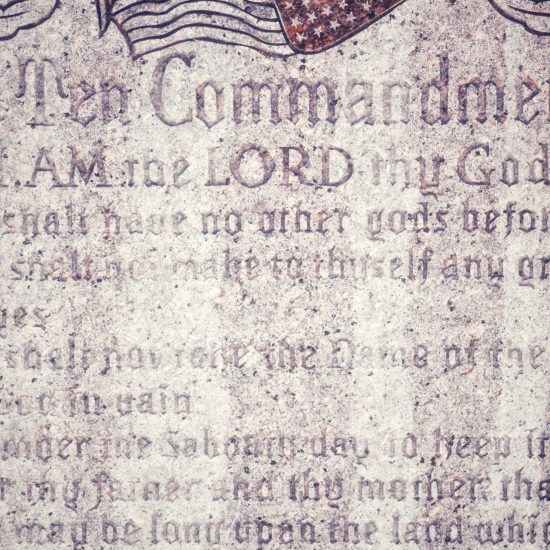By the time our April issue lands in mailboxes, we might have a ninth U.S. Supreme Court justice for the first time since Antonin Scalia’s death more than 13 months ago. The resume of Judge Neil Gorsuch, a reliable conservative justice, suggests he will soon move to Washington, D.C., to become the first Protestant on the high court since 2010. I worry, however, about his theology. This is not to suggest a vote against Gorsuch, who has offered good rulings in other important cases, like those involving the Religious Land Use and Institutionalized Persons Act (and I reject attacks by some conservatives who worry he is secretly liberal because of the views of his Episcopal priest). Rather, I hope we can use this moment to think more carefully about faith.
 In 2009, Gorsuch wrote a dissenting opinion in a case when his fellow judges ruled that the placing of a Ten Commandments monument on public property violated the First Amendment’s prohibition against establishing religion. Gorsuch argued the monument should be allowed since the Ten Commandments can carry a purely “secular meaning.” In 2010, Gorsuch wrote another dissenting opinion when outnumbered on a church-state case. That time he insisted a cross could be a secular symbol with no religious purpose, thus arguing it could be displayed on public property.
In 2009, Gorsuch wrote a dissenting opinion in a case when his fellow judges ruled that the placing of a Ten Commandments monument on public property violated the First Amendment’s prohibition against establishing religion. Gorsuch argued the monument should be allowed since the Ten Commandments can carry a purely “secular meaning.” In 2010, Gorsuch wrote another dissenting opinion when outnumbered on a church-state case. That time he insisted a cross could be a secular symbol with no religious purpose, thus arguing it could be displayed on public property.
In both cases, Gorsuch attempted to save religious symbols on public property by stripping them of their religiousness. Such an argument is self-defeating. The Ten Commandments and the cross are not important because of their historical impact, but because of their religious meaning. If it were not for the religious messages, no one would be trying to put these symbols in prominent places. Without the religious meaning, wearing a cross necklace would make as little sense as wearing a pretty, golden electric chair!
In another case when an attorney — now the governor of Texas — argued before the Supreme Court that a Ten Commandments monument should be allowed because of its “secular message,” the attorney was quickly rebuked by Scalia.
“It’s not a secular message,” Scalia argued. “I mean, if you’re watering it down to say that the only reason it’s okay is it sends nothing but a secular message, I can’t agree with you.”
Although Scalia supports the posting of such monuments on public land, he would not allow the attorney to twist the monument into something it is not. I am not suggesting no religious symbols should be allowed on public land; but let us not fight for a pyrrhic victory by trying to de-Christianize Christian symbols. Sadly, it is usually Christian attorneys pushing the legal arguments that the Ten Commandments or the cross are “secular” symbols. It almost feels like we are just trying to trick judges in a quest to win a case by any means.
As a Christian, I view the Ten Commandments and especially the cross as sacred. Thus, I believe churches should erect crosses and post the Ten Commandments. It communicates who we are, what we believe and what we value. But as a Baptist, I worry about efforts to get the government to enshrine my beliefs — either in a law or on a block of granite.
The fights over placing sacred symbols on public property often distract us from the more important work of living out those principles for which we claim to fight. And we risk turning symbols — like monuments bearing the words of the Ten Commandments — into idols. What makes the Ten Commandments impactful is not engraving the words on stone, but carving them on our hearts. What our nation needs is not more monuments of the Ten Commandments, but more people living by the Ten Commandments. Teach them in church and help people memorize them and live by them. Perhaps if we spent as much money and energy teaching the Ten Commandments as we do fighting to post them, we would see some real progress in our nation.
Brian Kaylor is editor of Word&Way.






